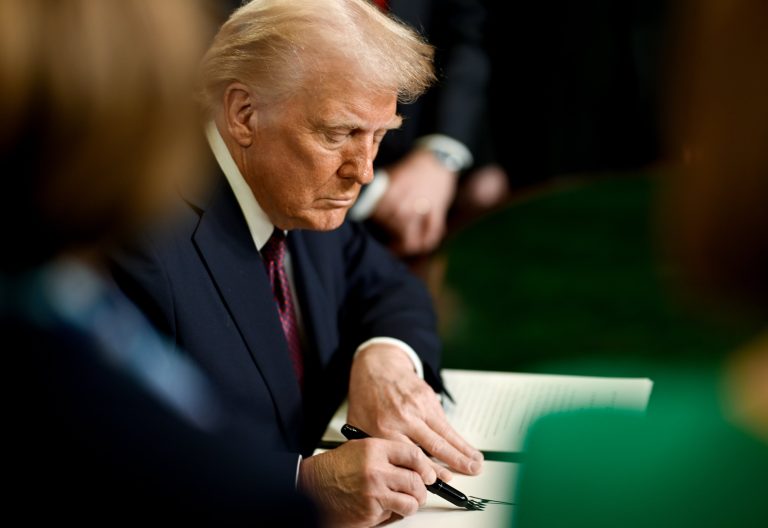Cooperation, not tariffs, key to stronger economies

The imposition of tariffs between the United States and China has raised global concerns, as escalating trade tensions could impact economies worldwide. The need for consensus in addressing contentious issues is more urgent than ever.
On February 1, President Donald Trump signed an executive order imposing a 10 percent tariff on goods imported from China and 25 percent on goods from Canada and Mexico. While the tariffs on Canada and Mexico were temporarily paused, the move received worldwide opposition, especially considering the fragile global economic state following the last trade war.
In retaliation, China imposed its own tariffs, including 15 percent duties on US coal and liquefied natural gas, and 10 percent duties on crude oil, agricultural machinery, and vehicles. Additionally, China has restricted access to critical minerals essential for defense and technology, such as tungsten and gallium, in response to US protectionist policies. This escalation has turned into a tit-for-tat trade war, further destabilising the global trade environment.
The world economy is already struggling with the lingering effects of the Covid-19 pandemic, supply chain disruptions, shifts in consumer behavior, and financial instability. Further economic disruption, especially through trade protectionism, could worsen these challenges. Ongoing issues such as the Russia-Ukraine conflict, climate change, and rising energy costs add to the uncertainty. Trump’s confrontational trade stance with China risks exacerbating economic volatility.
Developing nations, particularly in Africa, are the most vulnerable to the fallout from this trade conflict. While US protectionist policies may aim to benefit the domestic economy, they often hurt both the US and weaker economies like those in Africa, which rely on global trade. A trade war between the world’s largest economies could lead to ripple effects that harm nations with weaker financial systems, including in Africa.
China is Africa’s largest trading partner, and US tariffs on Chinese goods could severely impact African economies. A reduction in demand for 456 Chinese-made products could lead to drops in commodity prices, weaken local currencies, and depress stock exchanges across Africa. Such disruptions would leave African economies even more vulnerable to external shocks.
More than 70 percent of Africa’s exports go to major markets like the US, China, and the European Union. A trade war between China and the US could reduce global demand for African exports, especially commodities like oil, gas, and raw minerals. While China has increased its imports of agricultural products from Africa, such as avocados and soybeans, a slowdown in Chinese demand could hurt African farmers and exporters.
The African Continental Free Trade Area (AfCFTA), which consolidates a market of 1.2 billion people with a combined GDP of $2.5 trillion, provides an opportunity for African businesses to counter the negative impacts of the trade war. By capitalizing on AfCFTA’s potential, African countries can work toward economic diversification and reduce their dependence on global trade partners. If African businesses can position themselves strategically, they may find new opportunities within the continent, filling gaps left by shifting supply chains and trade disruptions.
To mitigate the adverse effects of the trade war, African nations should focus on moving up the value chain. By exporting more value-added products and services, rather than just raw materials, African economies could reduce their vulnerability to price fluctuations in global commodity markets. For example, African countries can increase their exports of oil and gas to China, especially as the US faces trade restrictions.
However, this transition will require significant investments in infrastructure, technology, and local industries. The lack of a strong manufacturing sector and insufficient infrastructure in many African countries remain persistent challenges. To fully take advantage of AfCFTA and other trade opportunities, African nations must focus on addressing these gaps to build a more resilient and diversified economy.
— The writer is a journalist and communications consultant











